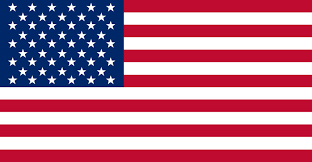The United States government has begun revoking the visas of several international students, with some reportedly arrested and taken into custody without prior warning.
According to ABC News, over 600 students across more than 90 colleges and universities have either lost their visas or had their legal status terminated in recent weeks. The majority of affected students are from India and China, the two largest sources of international students in the U.S.
Although the move has triggered panic among foreign students, especially Nigerians who make up 1.5% of the international student population, no Nigerian has been confirmed affected so far. Speaking to PREMIUM TIMES, spokesperson for the Nigerians in Diaspora Commission (NiDCOM), AbdurRahman Balogun, said the commission is aware of the situation, but no Nigerian student has reported being affected.
The students caught in this wave of visa crackdowns are mostly holders of F-1 and J-1 visas. The F-1 visa supports full-time academic study, while the J-1 visa is granted for cultural and educational exchange programs, including research, training, and teaching.
Reports indicate that some students have been targeted due to alleged involvement in political protests, with U.S. officials citing the Immigration and Nationality Act of 1952. The Act allows for visa revocation if the Secretary of State believes a non-citizen’s presence could cause serious adverse foreign policy consequences.
In March, Secretary of State Marco Rubio confirmed the policy shift, stating that the State Department had revoked the visas of hundreds of students, particularly those involved in activism. He said, “It might be more than 300 at this point. We do it every day. Every time I find one of these lunatics, I take away their visas.”
Critics say this is part of the Trump administration’s broader crackdown on immigration. Some students have taken legal action against the U.S. government, accusing the State Department of violating their right to due process. In some cases, students allege they were penalized for minor infractions like old traffic violations.
Many now fear leaving the U.S. even temporarily, due to the risk of being denied reentry. Several universities, including the University of Maryland, Yale, Harvard, and Brown, have advised international students to avoid traveling during spring break.
Adding to the tension is a new U.S. travel ban introduced in March, affecting 43 countries—22 of them in Africa. Countries were placed under color-coded categories, with those on the “orange list” facing the strictest restrictions. Fortunately, Nigeria was not included on the list.





